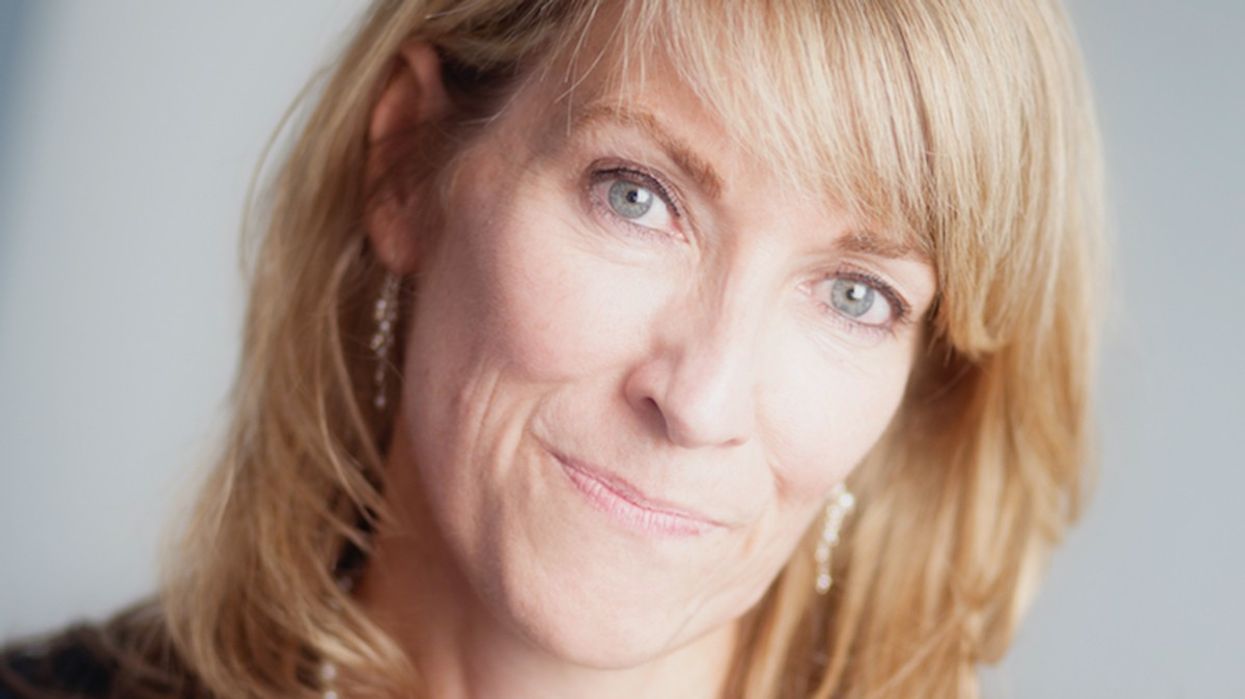Doctor Q&A: What is the best supplement for bloating? Doctor Renée answers your burning health questions

Celebrity NHS doctor Renée Hoenderkamp addresses GB News members' burning questions
|Doctor Renée Hoenderkamp

In this week's Q&A, celebrity NHS Doctor Renée Hoenderkamp reveals the best supplement for bloating, the relationship between sleep patterns and breast cancer, and the role diet plays in thyroid issues.
Don't Miss
Most Read
Our understanding of human health is still rudimentary, with many of the biggest questions unanswered.
Take cancer. Despite the billions spent on finding a cure, one remains elusive. And this is coming at a profound economic and human cost: cancer is on the rise globally, with the number of new cases expected to increase significantly in the coming years,
That is not to say progress has not been made in understanding the mechanisms that give rise to malignant cells and other everyday complaints.
The questions submitted to Doctor Renée Hoenderkamp this via health@gbnews.uk reflect this deepening knowledge.
For this week's Q&A, celebrity NHS Doctor Renée Hoenderkamp reveals the best supplement for bloating, the relationship between sleep patterns and breast cancer, and the role diet plays in thyroid issues.
Last week, our resident doc shed light on the curious link between blood pressure and drinking cold water, how to deal with persistent acid reflux and the supplements that can help alleviate hip pain.
It's important to remember that the advice given below is general and not individual and you should always seek individualised health care from a doctor.
With those caveats aside, see below Doctor Hoenderkamp's answer's to GB News members' burning questions.
Hey doc, I'm a woman in my fifties and breast cancer weighs heavily on my mind. I recently read that being a morning person and having daytime dozing are linked to a lower risk of breast cancer. Is there anything in this?
This is a great question and relates to a recent study which looked at sleep patterns and any potential link to breast cancer with a top-line suggestion that morning people and daytime dozers are more at risk of breast cancer.
Having had a look through the study I wouldn’t worry too much. The biggest flaw with studies like this is that the actual sleep patterns assigned to the results are self-reported and study participants are notoriously bad at accurately reporting habits.
Secondly, this study found that being a morning person protected against certain breast cancer types and overall for some cancers the results were not statistically significant.
So I think on the sleep timing and dozing, don’t even think about it. It’s a complex and messy study and there are many holes.
As you are clearly worrying about breast cancer let's just unpick the risks you can control.
Breast cancer is the most common female cancer and in five years 23 women in 1000 will get it.
These are the best things you can do now to lower your risk:
- Keep your BMI under 25 - being obese creates an extra 24 cases per 1000.
- Limit alcohol – drinking 2+ units of alcohol a day creates an extra 4 cases per 1000.
- Don’t smoke - smoking creates an extra 3 cases per 1000.
- Exercise – 2.5 hours of moderate exercise aa week reduces that number by 7 women per 1000.
I hope that this helps and I have included this study and the risk chart.
Hi Doctor Renee, what's the supplement for bloating? I've tried everything and it still gives me grief! Any help is appreciated.
I think you are referring to the probiotic I often mention. If so, its Symprove and you can buy it here. I have spent a lot of time researching probiotics and it has taken me 5 years to find one that I now take! What convinced me was the ongoing trials and results that Symprove have done over the last 20 years with UCH, Kings College London and Parkinson's UK.
The work that they have done on IBS has shown significant improvements in study symptoms, and bloating is one of those. I have linked the study.
Work at UCL has also shown that Symprove is the only probiotic to actually reach the gut in a workable form when compared to other well-known market leaders.
So, for me, it's worth taking as there is nothing to lose; it is a food supplement and there appears to be no downside to trialling it for three months (apart from the cost of course).
For me, one positive side effect that I have noticed is that my hair is no longer falling like it used to and my nails, for the first time in my life, are hard and growing!
I hope that this helps and good luck.
Hi doc, what foods should I eat and what foods should I avoid if I have thyroid problems? I have been suffering for the last few years now. Thank you
As a fellow thyroid disease sufferer I do have a special interest in this area and in helping my patients when perhaps they have been ignored previously. I don’t think doctors discuss dietary support of your thyroid often enough, if at all, but there are things you can try. I can’t guarantee they will work but it's worth a go!
The best approach is nutritional support for the thyroid itself and alongside this, eliminating triggers. In this way, there is weak evidence that lifestyle interventions can affect antibody levels and thus alter disease progression.
Vitamin D supplementation
It appears that people with autoimmune thyroid disease (AITD) are more often deficient in Vitamin than in healthy people. In support of using vitamin D supplementation, there is evidence that Vitamin D supplementation reduces AntiTPO and AntiTG antibodies.
The guidance for daily dosage is 1000 IU a day but always combine this with K2 and I would recommend a spray for sub-lingual use for best absorption. If testing vitamin D levels, look for optimal levels (over 75)
Trial without gluten
There is a proven association between AITD and coeliac disease which is the inability to tolerate gluten in the diet. Patients are between four to six times more likely to have thyroid disease if they have coeliac disease. It is always important therefore to test for coeliac disease if you are diagnosed with thyroid disease.
The evidence for a gluten-free diet positively affecting auto-immune thyroid disease is weak but it is worth a trial over 3-6 months and tracking antibodies and thyroid function.
Selenium
There is evidence that selenium supplementation can reduce TPO antibodies in people with AITD but there are also risks of selenium supplementation as it has been shown to have a link to prostate cancer risk. So if you are male, try and get the selenium naturally in selenium-rich foods such as Brazil nuts, crab, salmon, prawn, liver etc.
Selenium plays an important role in thyroid hormone synthesis
B12
Vitamin B12 deficiency is often associated with thyroid disease, particularly hypothyroidism and autoimmune thyroid disease. A meta-analysis of 64 studies found that people with hypothyroidism have lower levels of B12 so supplementation is important.
Iron
People with thyroid disease are often iron deficient and need supplementation. The thing to consider here is when to take it if you also take thyroxine as it negatively affects thyroxine absorption. So make sure you take your thyroxine first thing, on an empty stomach, with a glass of water and do not have any food or caffeine for 30 minutes. In terms of when to then take your iron supplement, leave it at least 3 hours and take iron with orange juice as it aids absorption.
Hopefully, that’s a few to be getting on with. Also, when you test your thyroid function, always aim for a TSH of less than 2.5 (UK doctors tend to just want this in range, even if you are feeling awful!). Evidence shows people feel better with a TSH of under 2.5, even when they don’t have thyroid disease!










